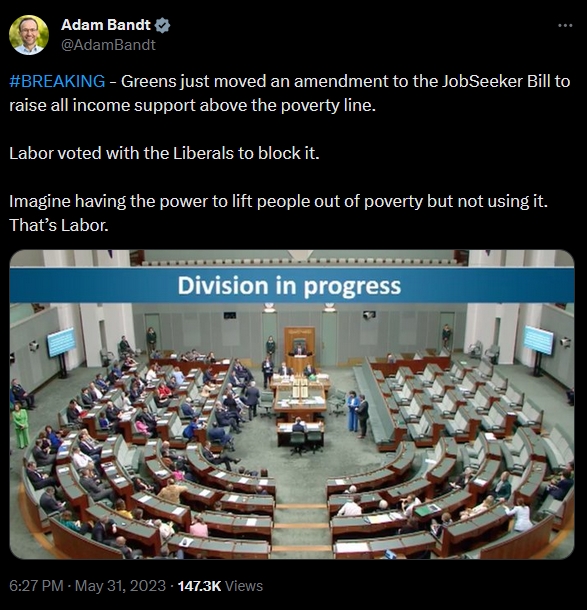In the Australian political landscape, it is a perplexing reality that both major parties, the Australian Labor Party (ALP) and the Liberal-National Coalition, have frequently aligned when it comes to welfare policies. One particular concern that has raised significant public outcry is their joint commitment to maintaining welfare payments below the poverty line. This unfortunate consensus has created a distressing environment for those who rely on social assistance, perpetuating a cycle of poverty and inequality across the nation.
This bipartisan consensus, while maintaining some ideological differences, has resulted in a recurring voting pattern that consistently chips away at the economic security of the most vulnerable members of society. The ALP and the Coalition have repeatedly voted in favor of regulations that ensure welfare payments remain significantly below the poverty line. Such actions have demonstrated a disregard for the well-being and dignity of those who rely on these payments to make ends meet.

Contrary to this distressing status quo, the Australian Greens have emerged as a compassionate and progressive alternative, advocating for a policy that addresses the urgent need to raise welfare payments above the poverty line. The Greens' proposal to increase the payment rate to $88 a day reflects a realistic assessment of the costs of living in Australia, ensuring that recipients can afford basic necessities such as food, shelter, and healthcare.
It is ethically imperative to acknowledge the devastating impact that living below the poverty line has on individuals and families struggling to make ends meet. The current welfare payment rate fails to adequately support individuals and families in their pursuit of a dignified life, trapping them in a cycle of poverty that is difficult to escape. This forced struggle not only compromises their well-being but also undermines their ability to contribute meaningfully to society.
By contrast, the Greens' policy of raising welfare payments to $88 a day recognizes the importance of establishing a safety net that enables individuals and families to meet their basic needs. This humane course of action offers a glimmer of hope to those who are currently locked in a cycle of poverty, providing them with the means to rebuild their lives and contribute positively to society.
Furthermore, the argument that increasing welfare payments to a livable threshold would be financially burdensome is deeply flawed. The economic cost of maintaining individuals and families below the poverty line is far greater than the investment required to uplift them from destitution. The benefits of increased consumer spending, improved health outcomes, and reduced crime rates, among others, far outweigh the initial expenditure. It is a morally bankrupt position to prioritize short-term fiscal considerations over the long-term well-being and potential of our fellow citizens.
It is disheartening to witness the ALP and the Liberal-National Coalition continuously voting together to keep welfare payments below the poverty line. This consensus perpetuates a cycle of poverty and inequality that undermines our society's values of compassion and fairness. The Australian Greens' policy of raising the rate above the poverty line to $88 a day represents the only humane course of action. By endorsing this policy and prioritizing the well-being of our most vulnerable members, Australia can take a significant step towards building a more equitable and compassionate society.